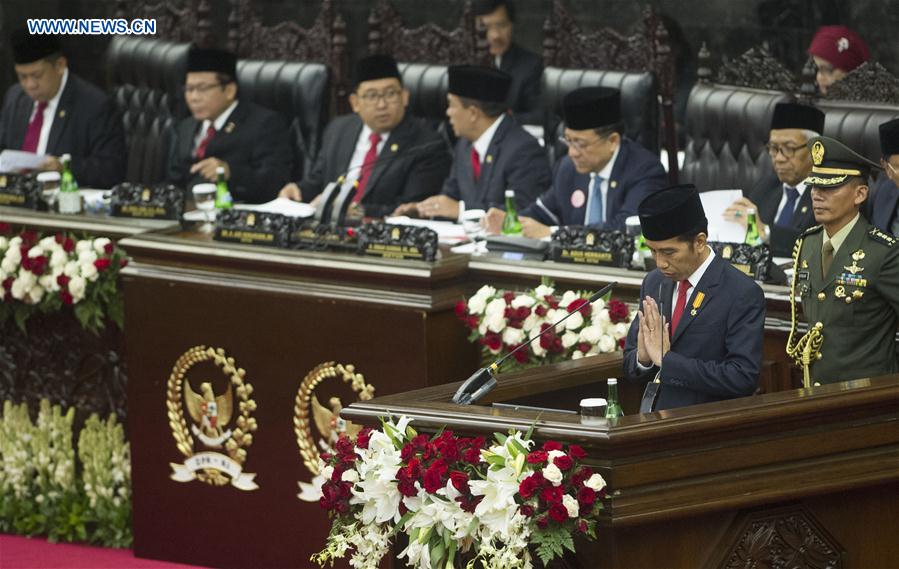
Indonesian President Joko Widodo (Front) gestures during his annual speech at the parliament building in Jakarta, Indonesia, Aug. 16, 2016. President Joko Widodo on Tuesday said poverty, unemployment, and social inequality as main challenges that Indonesia needs to tackle in pursuing the acceleration of development. (Xinhua/Zulkarnain)
JAKARTA, Aug. 16 (Xinhua) -- President Joko Widodo on Tuesday proposed to the parliament Indonesia's 2017 state budget which is expected to boost fiscal stimulus and expedite infrastructure development.
The government is targeting GDP growth of 5.3 percent next year, from an estimated 5.2 percent this year, said Joko in his state-of-the-nation address in Jakarta. Southeast Asia's largest economy saw its annual growth of 5.18 percent in the second quarter of this year.
"Global economy is expected to improve next year, but we need to work very hard to achieve it," he said.
The government projects state spending of 2,070.5 trillion rupiah (or 158.07 billion U.S. dollars) next year, up 5.53 percent from this year's revised state budget.
Meanwhile, the president targets state revenue at 1,737.6 trillion rupiah as it expects higher tax collection after the government launched its tax amnesty scheme in July. Most of the state revenue will come from tax at 1,495.9 trillion rupiah, the proposed bill said.
The proposed state budget for 2017 has also set a fiscal deficit of 2.41 percent, compared to this year's projection of 2.35 percent.
"The fiscal policy for 2017 continues to be expansive yet directed at increasing the nation's production capacity," Joko says adding expenditure for infrastructure projects will be increased.
The assumptions also include the average rupiah exchange rate at 13,300 against the dollar, the rate of three-month government debt papers at 5.3 percent, the crude oil price at 45 U.S. dollar per barrel, oil output at 1.91 million barrels per day and gas production at 1.15 million barrels of oil equivalent per day.
The president unveiled his draft 2017 on Tuesday, less than three weeks after a reshuffle in which he replaced ministers in key economics posts to provide more room for economic growth.










